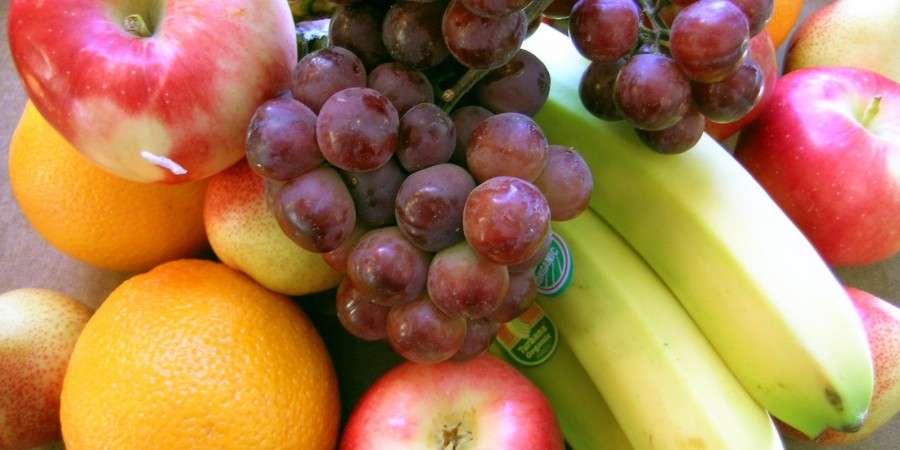Can Eating Too Much Fruit Be Bad for You?
It has been ingrained in our heads from a young age to “eat your fruits and vegetables!” But can eating too much fruit hamper your weight loss goals?
Benefits of Fruit
According to the UDSA, a person who consumes 2,000 calories/day should eat 1.5-2 cups (2 to 4 servings) of fruit each day. Incorporating a variety of fruits in your diet can improve your health in the following ways:
- Fruit contains many vitamins and anti-oxidants that protect the body from oxidant stress, diseases, and cancers. These compounds can also help to reduce blood pressure and fight against disease by boosting the immune system.
- Fruit contains a lot of soluble dietary fiber which helps to lower cholesterol and fats, to aid in digestion, and to make you feel fuller.
- Find more nutritional benefits from a wide range of fruit here: http://www.nutrition-and-you.com/fruit-nutrition.html
Drawbacks of Fruit
Although there are many health benefits of fruit, consuming too much can actually hinder weight-loss and other health goals. The key to any weight-loss diet is to eat
well-balanced meals and to
maintain stable blood sugar levels. All of the food groups labeled in the food pyramid below are important. If you eat too much of one group and less of others, then you will be missing out on valuable properties the other food groups have to offer. Make sure that you are eating the correct quantity and not replacing another food group with fruit.

Stable Blood Sugar & The Glycemic Index
Another benefit of eating balanced meals is that blood sugar levels are more consistent. If you have a diet that is disproportionately skewed to fruit and lacks protein and healthy fats, you may be more vulnerable to have peaks and valleys in your blood sugar levels. Volatile blood sugar levels lead to energy spikes and crashes as well as excess energy being stored as fat. (I will have to provide more info about this in a future blog).
The Glycemic Index is a system that is used to rank foods (on a scale of 1-100) based on extent to which they raise blood sugar levels after eating. Fruits with high Glycemic Index ratings are rapidly digested and absorbed and cause big fluctuations in blood sugar. Those with low ratings are digested slower, produce gradual increases in blood sugar, which is better for you and results in less stored fat. Which fruit do you eat most?
| Food |
GI Value |
| Cherries |
22 |
| Grapefruit |
25 |
| Prunes |
29 |
| Apricots, dried |
30 |
| Apple |
38 |
| Peach, canned in juice |
38 |
| Pear, fresh |
38 |
| Plum |
39 |
| Strawberries |
40 |
| Orange, Navel |
42 |
| Peach, fresh |
42 |
| Pear, canned |
43 |
| Grapes |
46 |
| Mango |
51 |
| Banana |
52 |
| Fruit Cocktail |
55 |
| Papaya |
56 |
| Raisins |
56 |
| Apricots, fresh |
57 |
| Kiwi |
58 |
| Figs, dried |
61 |
| Apricots, canned |
64 |
| Cantaloupe |
65 |
| Pineapple, fresh |
66 |
| Watermelon |
72 |
| Dates |
103 |
The Bottom Line
Include fruit in your diet because it offers tremendous health benefits. However, make sure that you are eating the correct quantity and not replacing another food group with fruit. Also, familiarize yourself with the Glycemic Index to understand what foods cause blood sugar levels to be more volatile.
Sources
http://www.livestrong.com/article/283666-can-you-eat-too-much-fruit-in-a-day/
http://authoritynutrition.com/is-fruit-good-or-bad-for-your-health/
http://www.foxnews.com/health/2014/02/25/is-too-much-fruit-making-fat/
http://www.shape.com/weight-loss/food-weight-loss/ask-diet-doctor-fruit-really-free-diet-food
http://oregon.providence.org/health-library/w/weight-problems/forms-and-information/ask-an-expert-can-a-person-eat-too-much-fruit
http://www.lowglycemicdiet.com/fruitsgi.html


